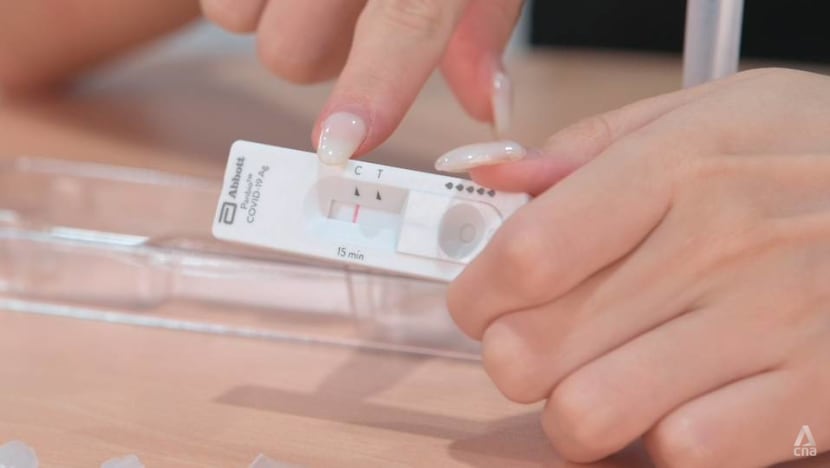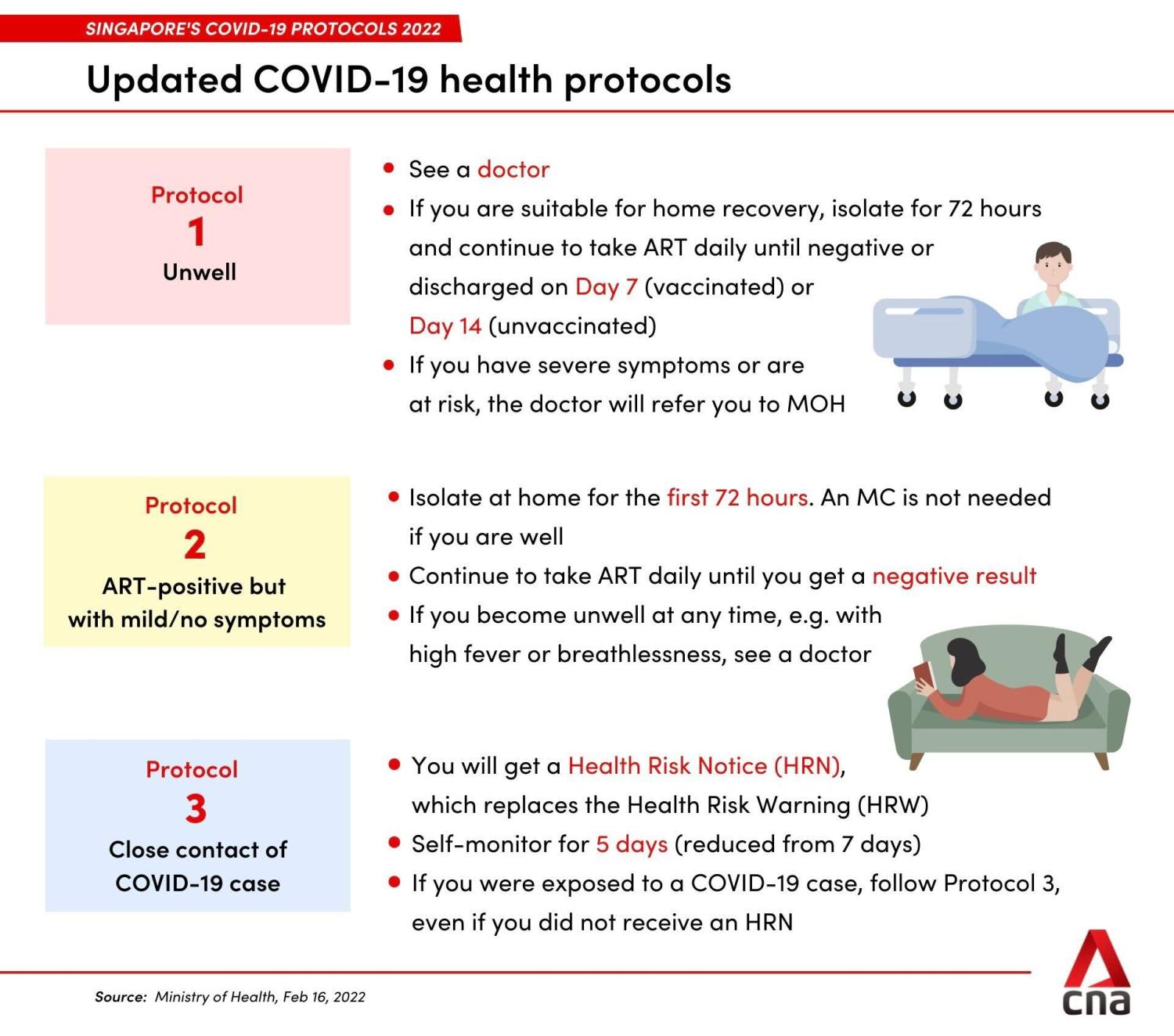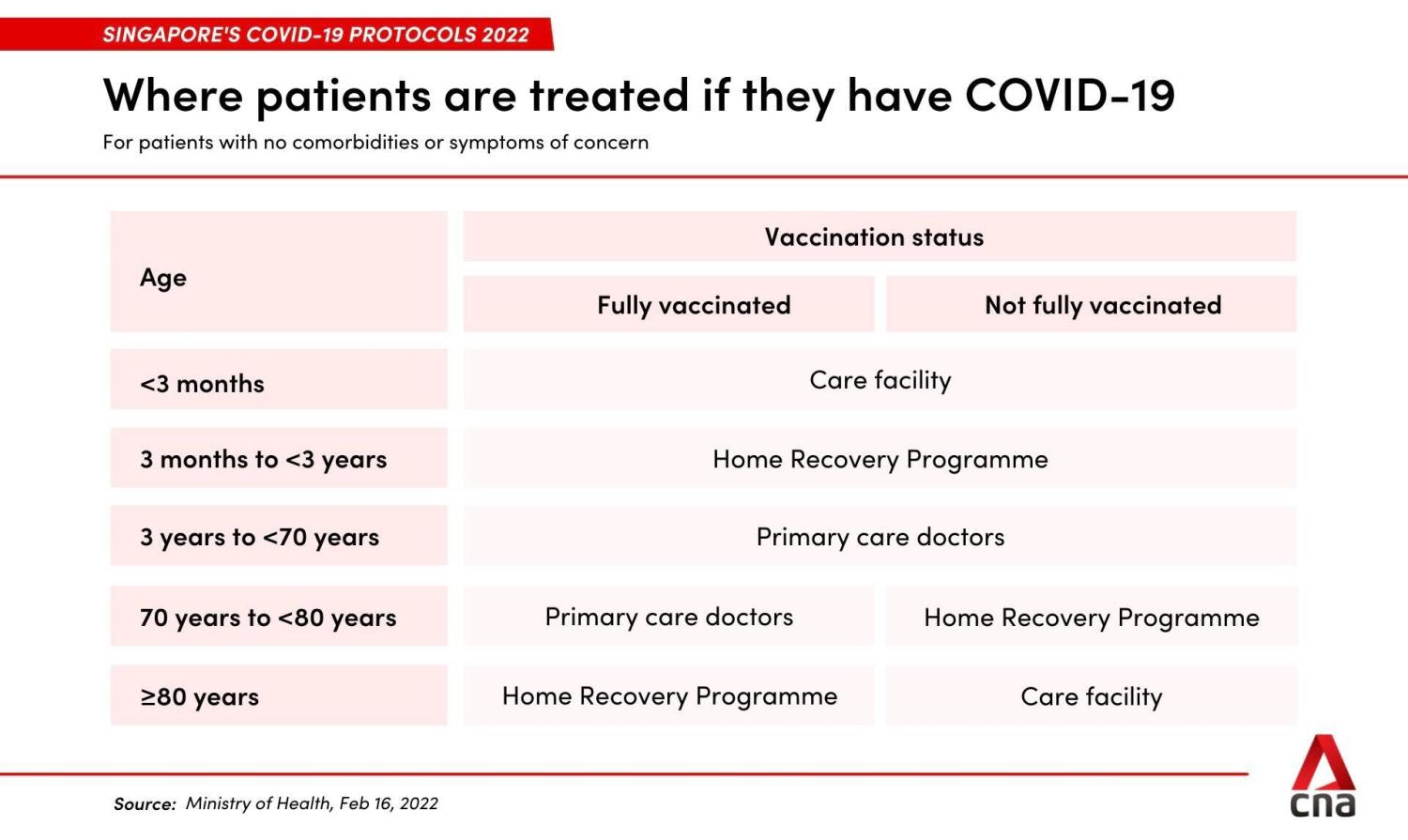Close contacts of COVID-19 cases to self-monitor for 5 days instead of 7 under revised 'health risk notice'

A negative result on the Abbott COVID-19 antigen rapid test kit. (Photo: Gaya Chandramohan)
SINGAPORE: People who have been identified as close contacts of COVID-19 cases will soon have their self-monitoring and self-test period reduced from seven days to five.
This comes under a revised measure called health risk notice (HRN) which will be introduced on Feb 18.
The health risk notice will replace the current health risk warning (HRW) that's issued by the Ministry of Health (MOH) for close contacts of COVID-19 cases.
Announcing this on Wednesday (Feb 16), the Health Ministry said the decision to reduce the self-monitoring period comes as individuals infected with the Omicron variant have shown to have a shorter incubation period.
Unlike a health risk warning, a health risk notice is not a legal obligation, Health Minister Ong Ye Kung said at a press conference by the multi-ministry task force.
"It's more important that ... at the point that you are infected, (you) inform your closest contacts so that they can start taking responsibility, so that's essentially the core of what has changed," Mr Ong said.
People who are aware of their recent exposure to a COVID-19 case should follow Protocol 3 - even if they did not receive a health risk notice from MOH, said the ministry.
Those under Protocol 3 may head out as long as they test negative.
“They should moderate their social activities, monitor their health and self-test with ART before leaving home for that day, especially if they are going to crowded places or are coming into contact with vulnerable individuals,” the ministry added.
People issued with a health risk notice can continue to get ART test kits at designated vending machines for self-testing during the monitoring period.
"Those who have already received HRWs should still complete their existing monitoring periods," said MOH.

MORE CAN RECOVER UNDER PROTOCOL 2
The changes were announced as Singapore moves to ease some COVID-19 measures.
Patients from more age groups can now recover at home under Protocol 2, which is for cases with mild or no symptoms.
“All patients aged between three and 69 with mild to no symptoms - irrespective of their vaccination status - may be managed by the primary care doctor under Protocol 2 without needing a default hospitalisation,” said MOH director of medical services Associate Professor Kenneth Mak at the press conference.
COVID-19 cases aged between 70 and 79 who are well and fully vaccinated can also visit a general practitioner and be placed under Protocol 2.
This is an expansion from the previous age band, which covers fully vaccinated patients aged five to 69, as well as patients aged five to 49 who are not fully vaccinated.

MOH noted that among patients infected since January, the “vast majority” from most age groups have mild symptoms and can recover safely on their own.
“Even amongst the seniors, the incidence of severe illnesses have been low,” MOH said, citing figures.
Among seniors aged 60 to 69 who were infected, about 0.5 per cent of fully vaccinated and 1.8 per cent of non-fully vaccinated patients were treated as severe cases.
Among vaccinated seniors aged 70 to 79, 1.2 per cent fell severely ill after being infected, MOH said.
Among children, 4.5 per cent of three- to four-year-olds who went to emergency departments required admission. Among children on the home recovery programme, less than 1 per cent of them were referred to the telemedicine providers for further management, MOH added.
With the changes, those under Protocol 2, including children, are “strongly advised” to avoid seeking treatment at the emergency departments of hospitals, said MOH.
“Individuals with non-emergency conditions turning up at emergency departments may be diverted to other urgent care clinics for further assessment, so as to prioritise these departments’ resources for patients requiring acute care,” it added.
People may also be diverted for admission to COVID-19 treatment facilities for further monitoring, as long as they do not require hospitalisation.
These measures will allow the Government to respond “more nimbly” to the ongoing Omicron wave, Assoc Prof Mak said.
“These changes will allow us to continue providing appropriate care for those infected with COVID-19 while ensuring that our hospital resources remain reserved for those who have more severe infections,” he said.
“They will enable our public healthcare system to be more resilient and to be able to cope with increased demands on our healthcare manpower.”
SUSPENSION OF IN-PERSON VISITS TO HOSPITALS EXTENDED
MOH also said that visits to all hospital wards and residential care homes will be suspended for another four weeks until Mar 20.
There will be a mid-point review after two weeks.
“Hospitals and homes have the discretion to allow visits for exceptional cases,” MOH said. “These visitors will continue to be subject to visitor management measures."
In addition, nursing homes will allow some infected residents to recover at the homes - but isolated from other uninfected residents - instead of being moved to separate care facilities.
This will allow residents to recover under the care of their nursing home provider who is also most familiar with their needs, MOH said.
"Moving away from a familiar environment can be distressing to nursing home residents and disruptive to their holistic care," it added.
The ministry noted that the majority of Omicron cases in nursing homes were mildly symptomatic and generally did not require the level of medical care provided at hospitals or dedicated COVID-19 care facilities.
“Residents assessed to be at higher risk, or who show signs of clinical deterioration, will continue to be conveyed to an appropriate care facility for further management,” MOH said.
BOOKMARK THIS: Our comprehensive coverage of the COVID-19 pandemic and its developments
Download our app or subscribe to our Telegram channel for the latest updates on the coronavirus pandemic: https://cna.asia/telegram



















